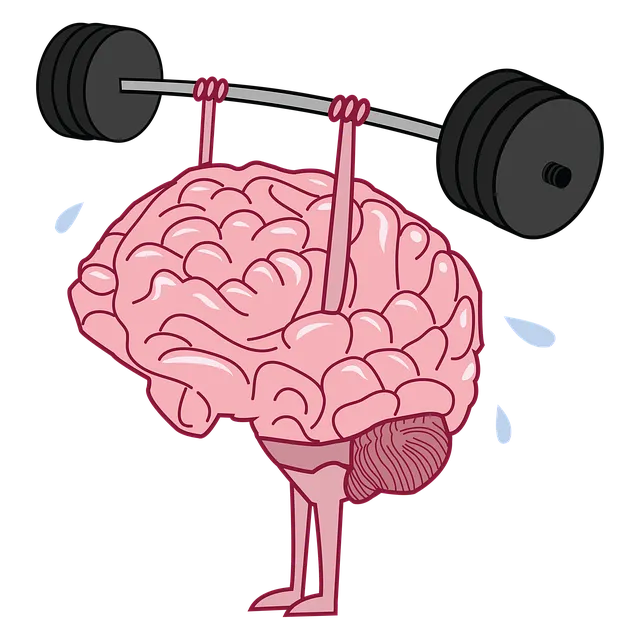Lone Tree Kaiser Permanente mental health services offer group therapy facilitated by skilled professionals who create safe spaces for individuals to connect and share mental health journeys. Using therapeutic techniques like active listening and mindfulness exercises, facilitators guide conversations, promote emotional healing, and empower participants with coping strategies. This approach fosters understanding, empathy, and personal growth within a supportive community setting, enhancing mental well-being through inclusive environments and active engagement.
Mental wellness group facilitation plays a pivotal role in enhancing community well-being, particularly within healthcare settings like Lone Tree Kaiser Permanente. This article explores effective techniques for facilitating supportive and engaging group sessions, drawing insights from real-world practices at Lone Tree Kaiser Permanente. We’ll delve into the benefits and challenges of group therapy, providing valuable context for understanding its potential impact on mental health services in our community.
- Understanding Mental Wellness Group Facilitation
- Techniques for Effective Group Sessions at Lone Tree Kaiser Permanente
- Benefits and Challenges of Group Therapy in a Healthcare Setting
Understanding Mental Wellness Group Facilitation

Mental wellness group facilitation is a specialized skill that goes beyond simply leading a gathering. It involves creating a safe and supportive space where individuals can connect, share experiences, and gain insights into their mental health journeys. Facilitators, like those offered by Lone Tree Kaiser Permanente mental health services, play a crucial role in guiding conversations, fostering open dialogue, and promoting emotional healing processes within the group dynamic.
This art requires an understanding of various therapeutic techniques to manage and navigate sensitive topics, such as anxiety relief. It’s akin to producing a Mental Wellness Podcast Series, where each session is carefully crafted to engage, educate, and empower participants. Through effective facilitation, these groups become powerful tools for personal growth and community building, addressing common mental health challenges and offering unique perspectives on emotional healing.
Techniques for Effective Group Sessions at Lone Tree Kaiser Permanente

At Lone Tree Kaiser Permanente, facilitators employ a range of techniques to ensure effective group sessions for mental wellness. One key approach is fostering an inclusive environment where every participant feels heard and valued. This involves active listening, using open-ended questions to encourage discussion, and validating individual experiences. By creating a safe space, facilitators enable members to build resilience and share coping strategies, enhancing their overall well-being.
Additionally, Lone Tree Kaiser Permanente mental health services integrate activities that promote mental health awareness and depression prevention. These may include mindfulness exercises, group reflections on personal growth, and collaborative problem-solving sessions. Such interactive methods not only enrich the learning experience but also empower individuals to take charge of their mental health, fostering a supportive community within the group setting.
Benefits and Challenges of Group Therapy in a Healthcare Setting

Group therapy offers a unique and beneficial approach to mental wellness at healthcare facilities like Lone Tree Kaiser Permanente. One of its key advantages is fostering a sense of community among individuals facing similar challenges. This supportive environment encourages members to share experiences, providing a platform for understanding and empathy. Through group dynamics, participants can gain valuable insights, develop coping strategies, and build a network of peers who offer encouragement and accountability. This collective experience often boosts confidence and promotes positive thinking, which are essential aspects of mental health improvement.
However, facilitating group therapy also presents challenges. Ensuring every member feels heard and respected requires skilled facilitators who can navigate sensitive discussions. Privacy and confidentiality are significant concerns, as individuals may share personal struggles. Additionally, managing different personalities and levels of comfort is crucial to maintaining a safe space. Despite these challenges, group therapy sessions at Lone Tree Kaiser Permanente have shown success in enhancing mental wellness, providing a unique and effective support system for those seeking confidence-boosting strategies and positive thinking interventions.
Mental wellness group facilitation plays a pivotal role in enhancing the well-being of individuals within healthcare settings, particularly at Lone Tree Kaiser Permanente. By employing tailored techniques, facilitators can create supportive environments fostering open communication and profound connections. This article has explored various methods, from understanding foundational concepts to addressing challenges unique to healthcare environments, ultimately underscoring the profound impact group therapy can have on the lives of those seeking support through Lone Tree Kaiser Permanente’s mental health services.


